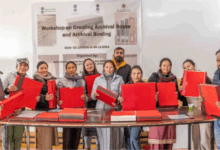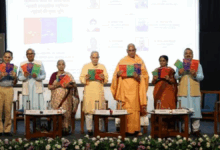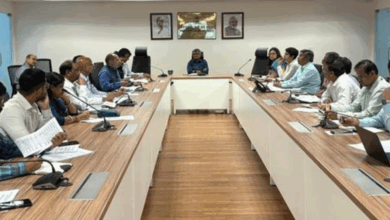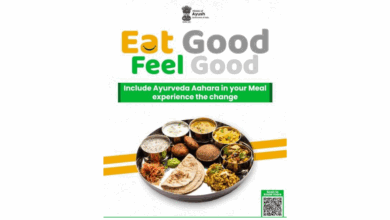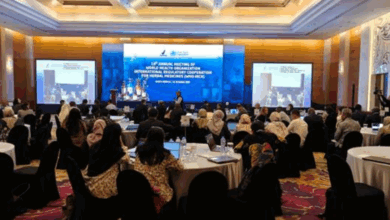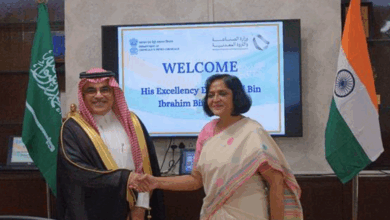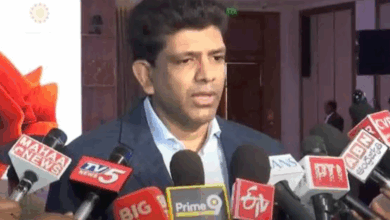Develop Passion for Hindi, Not Just Use It for Utility: Prof Sudha Singh
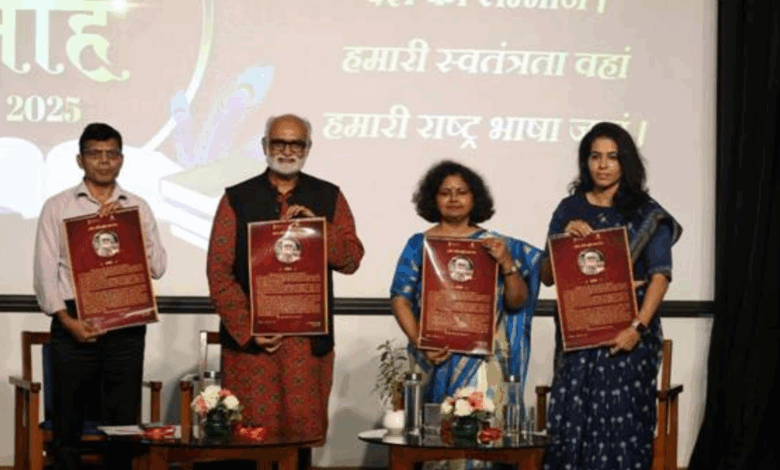
Learn an Indian language beyond your mother tongue; strengthen unity and celebrate multilingual diversity– Dr. Sachchidanand Joshi
Indira Gandhi National Centre for the Arts (IGNCA), Rajbhasha Anubhag is organising ‘Hindi Maah-2025’ (A month long celebration) from September 2 to September 30. Throughout this month, various cultural and literary programs and competitions will be held. The inaugural session on September 2 commenced with a traditional lamp lighting ceremony and a mangalacharan. The chief guest of the event was Prof Sudha Singh, Head of the Hindi Department at the University of Delhi, and the session was presided over by Dr. Sachchidanand Joshi, Member Secretary, IGNCA.
The event was also graced by Dr. Priyanka Mishra, Director (Administration), IGNCA. The program was moderated by Prof. Arun Bhardwaj, in charge of the ‘Rajbhasha Anubhag’ at IGNCA. Following the mangalacharan, Ms. Gangotri Das presented a Gaudiya dance on Ganesh Stuti, choreographed by Mahua Mukherjee and written by Prof. Amitabh Mukherjee.
Delivering the presidential address, Dr. Sachchidanand Joshi said that the objective of organising ‘Hindi Maah’ is to promote the use of Hindi and create awareness about it. He appealed to everyone that as Hindi Diwas will be celebrated on September 14 and Bhartiya Bhasha Diwas on December 11, during this three-month period, every colleague should accept the challenge of learning one Indian language other than their mother tongue. Successful participants will receive prizes and special ‘Prerna Puraskar’ (incentive awards). He especially urged the youth to actively participate in this initiative and strengthen linguistic diversity. He further said that India is a multilingual country and all Indian languages share a sense of brotherhood, though some people try to create disharmony for political and other reasons.
Dr. Joshi also informed that the number of Hindi publications at IGNCA has significantly increased, now reaching around 50 per cent. Subsequently, the use of Hindi in the institute’s publication ‘Vihangama’, social media posts, and other communications has been growing continuously. He emphasised that the language should be simple, easy, and understandable—not complicated. He strongly condemned the ridicule of Hindi and Hindi teachers in films and on social media and stressed the need to maintain the dignity of the language. Referring to the use of Artificial Intelligence (AI) in this technological age, he clarified that the ultimate responsibility for the accuracy and quality of translations lies with humans, not machines. In conclusion, he called upon all colleagues to participate in the competitions and take a pledge to preserve and promote Hindi as well as other Indian languages. On this occasion, he also released a pledge document.
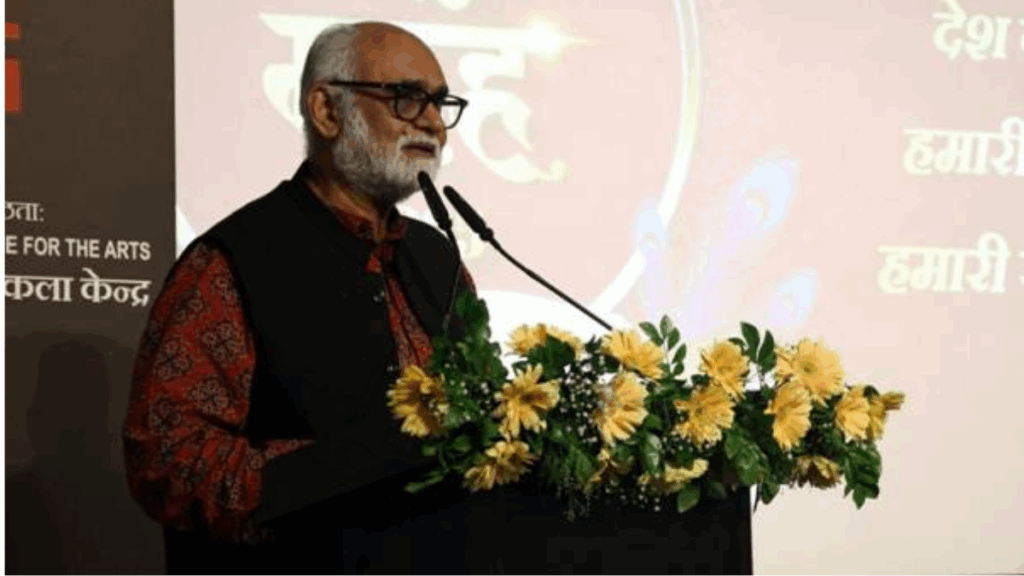
Prof Sudha Singh, addressing the inaugural session, said that celebrating Hindi for a day, month, or year carries historical value, but the role of language goes far beyond symbolic observance. She asked, “What do we expect from Hindi? Is it only for trade or livelihood? We must develop a passion for it, not approach it with selfish motives. If you love the language, it will give you everything.”
She reflected on the journey of Hindi from Pali, Prakrit, and Apabhransh to Khadi Boli, calling it a product of cultural synthesis. Expressing concern over its limited presence in technical and professional fields, she urged that Hindi must not remain confined to jobs or exams, but become a language of thought and knowledge. She appealed to the youth to learn other Bharatiya languages along with one foreign language, and highlighted the role of media in expanding Hindi’s reach. Emphasising that learning a language is a mark of being human, she concluded by calling for love, respect, and pride for Hindi, beyond material motives.
Speaking at the inaugural session, Dr. Priyanka Mishra said, “A few years ago, we used to celebrate Hindi Week, then we started celebrating Hindi Fortnight. This year, we are celebrating Hindi Month. This extension in the duration of Hindi-related celebrations reflects IGNCA’s commitment toward Hindi.”
As part of ‘Hindi Maah’ celebrations, upcoming major events include a competition on forgotten or extinct Hindi vocabulary on September 3, a self-composed poetry recitation competition on September 4, a Swasti Gayan, Mangalacharan and devotional song competition on September 8, a competition on regional vocabulary used in daily life on September 18, a language/survey-based competition on September 22, a cultural program on September 29, and the prize distribution and closing ceremony on September 30. These competitions will provide Hindi enthusiasts with an opportunity to showcase their talent.
Disclaimer: This is an official press release by Pib.

